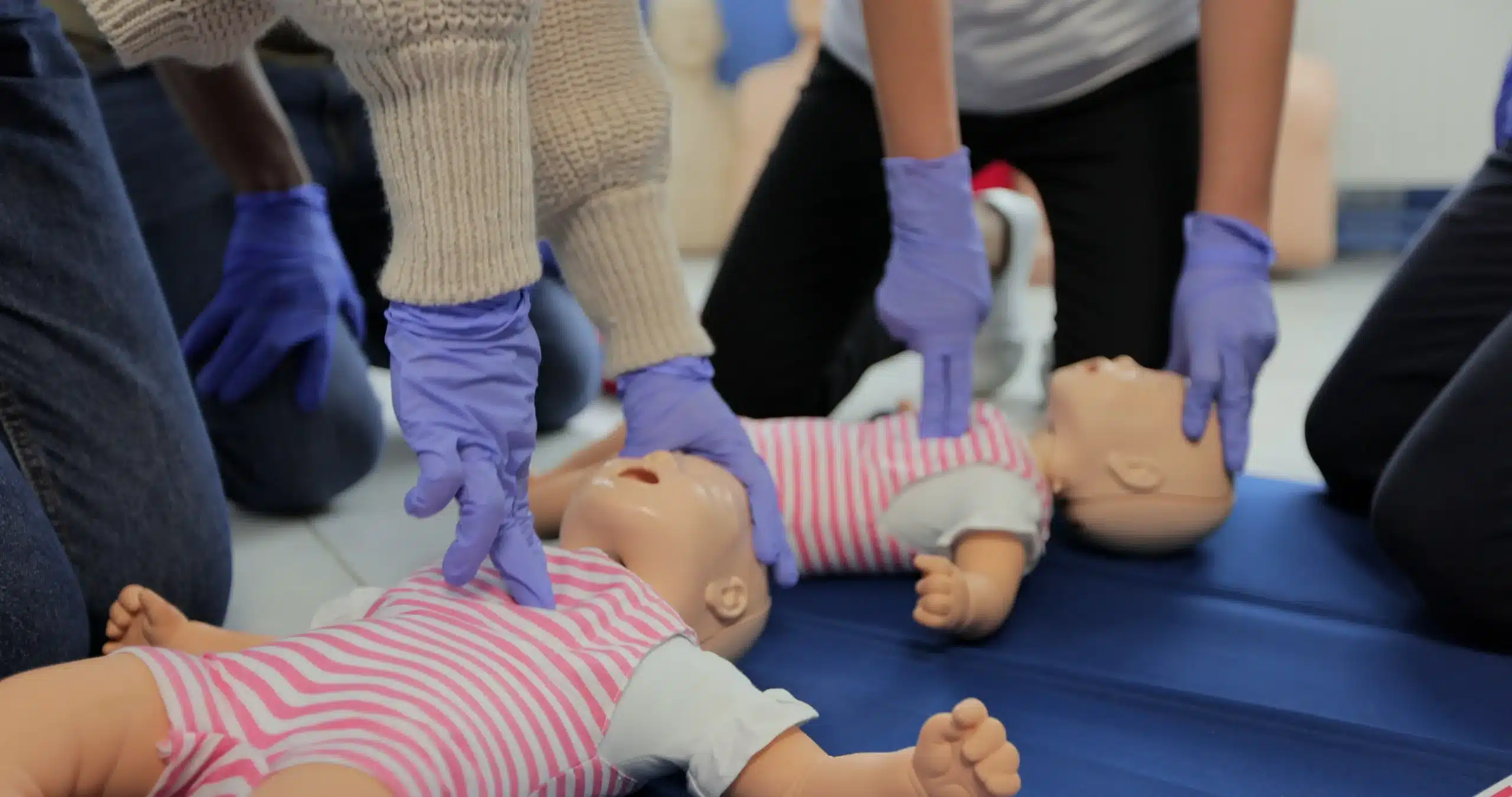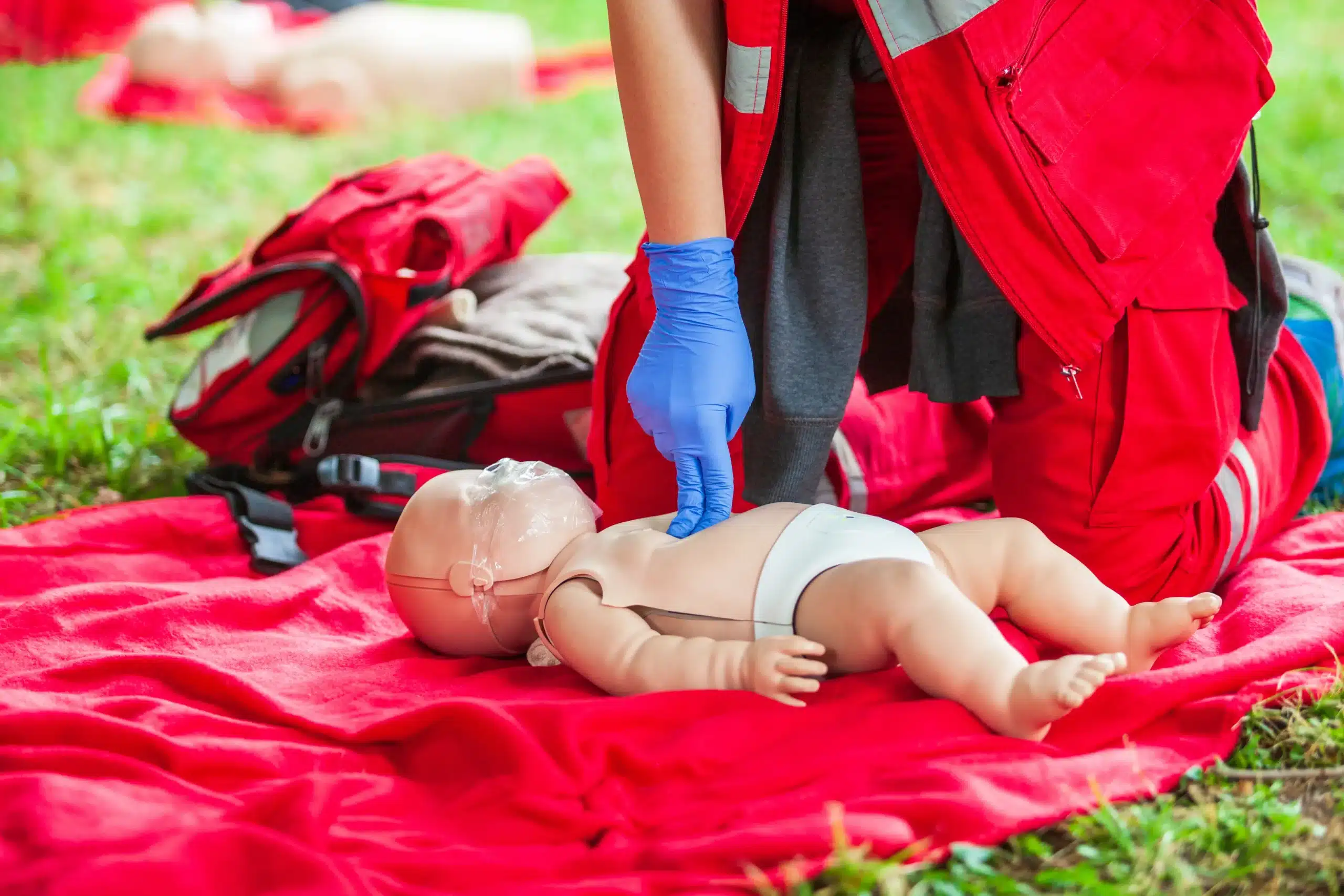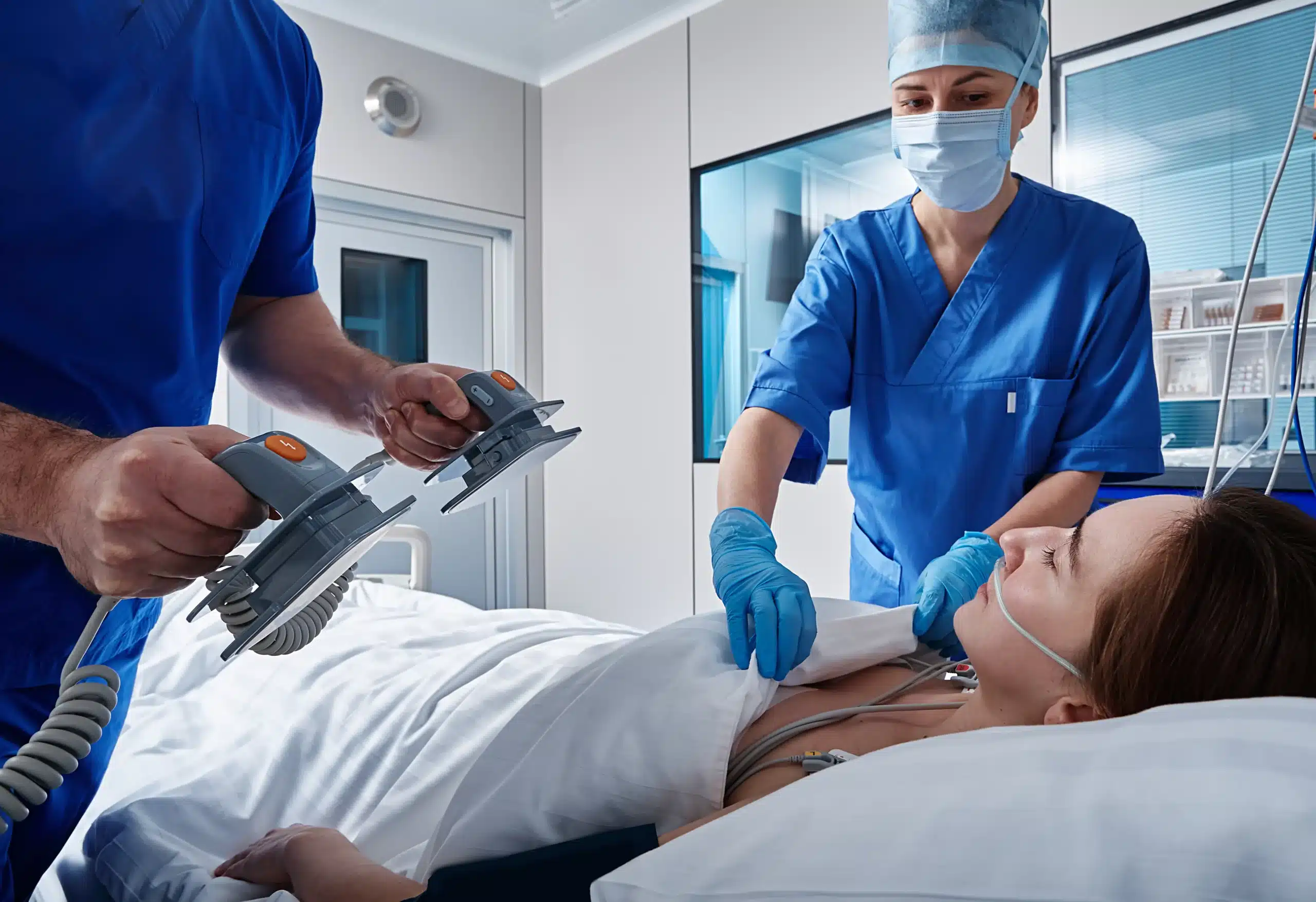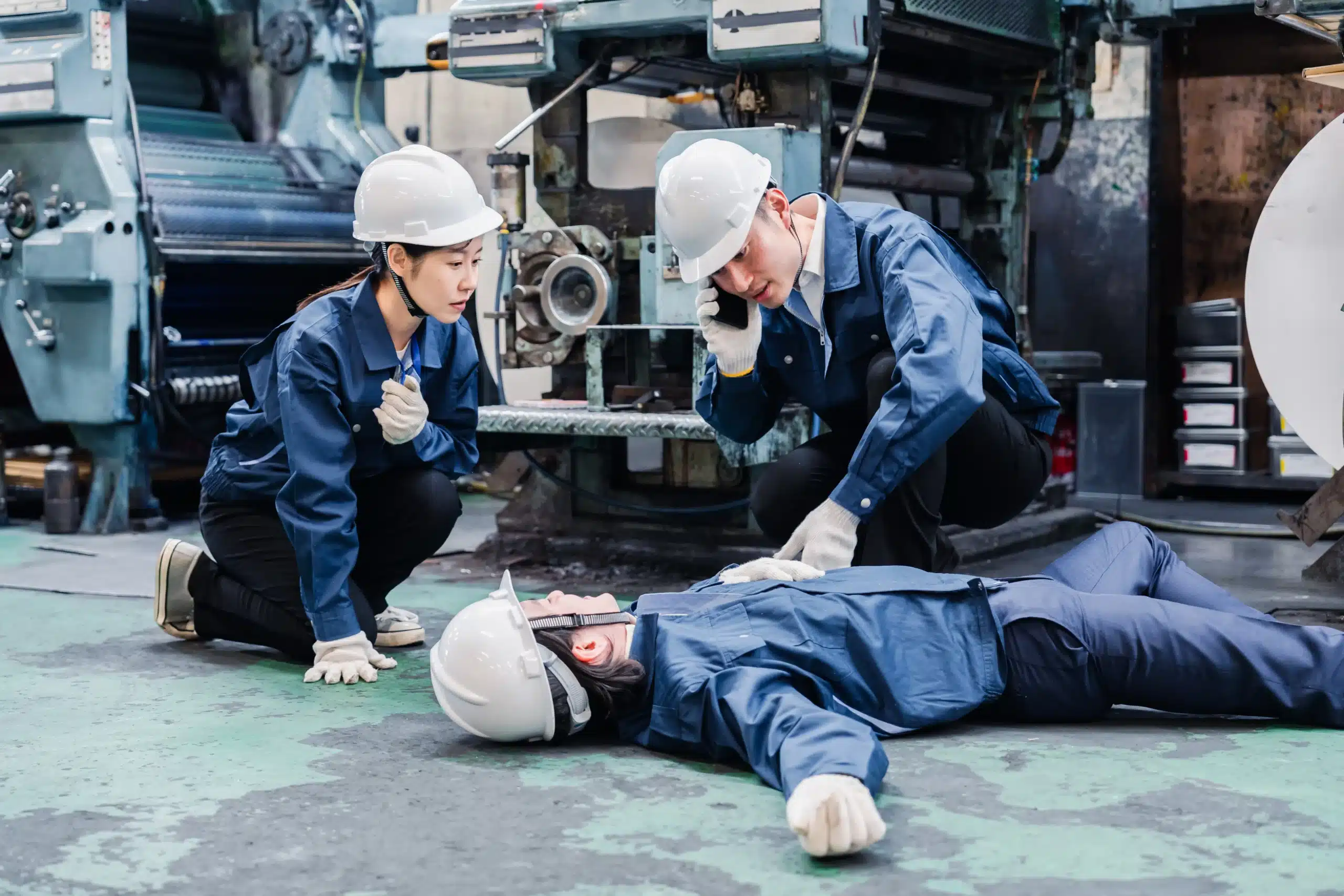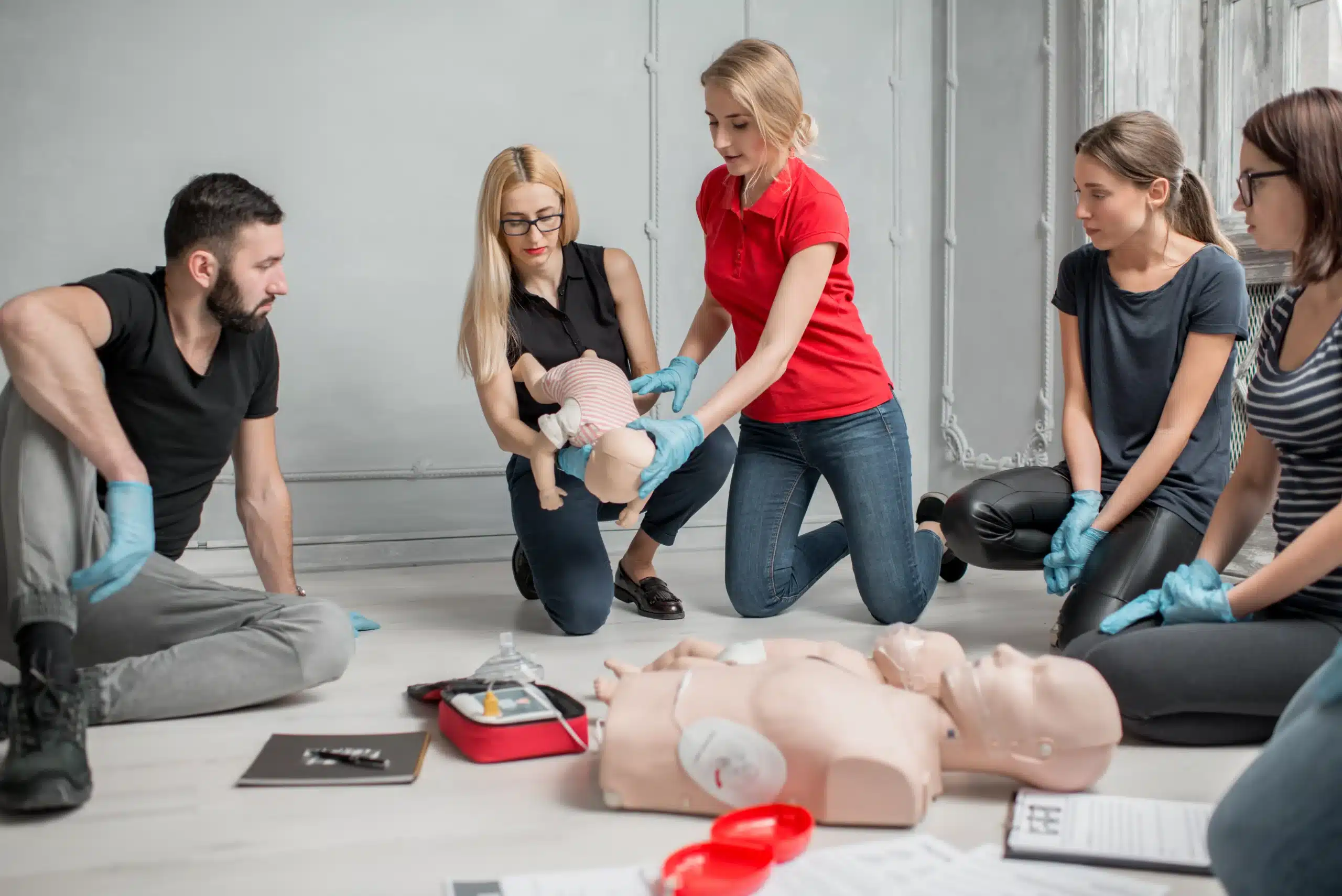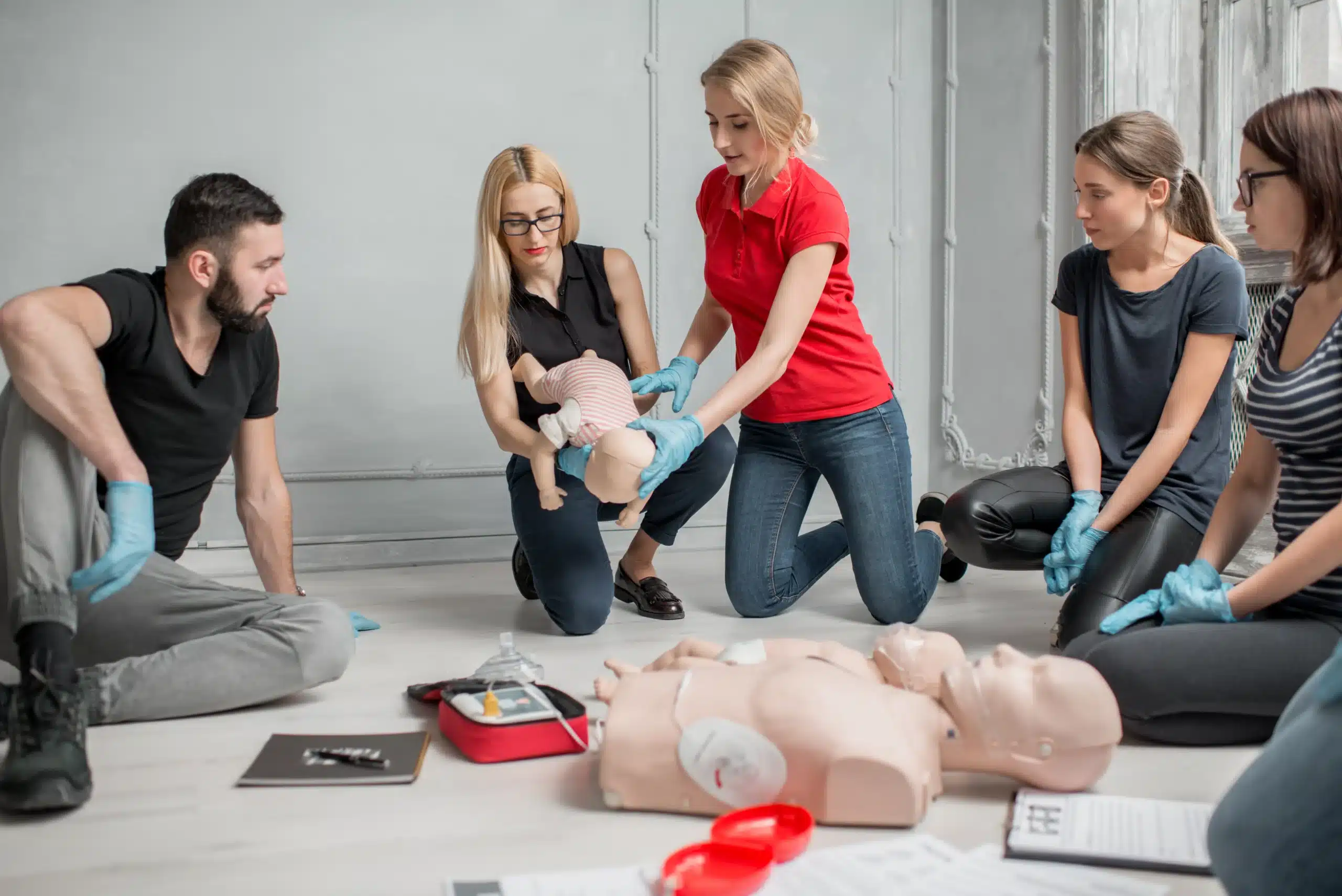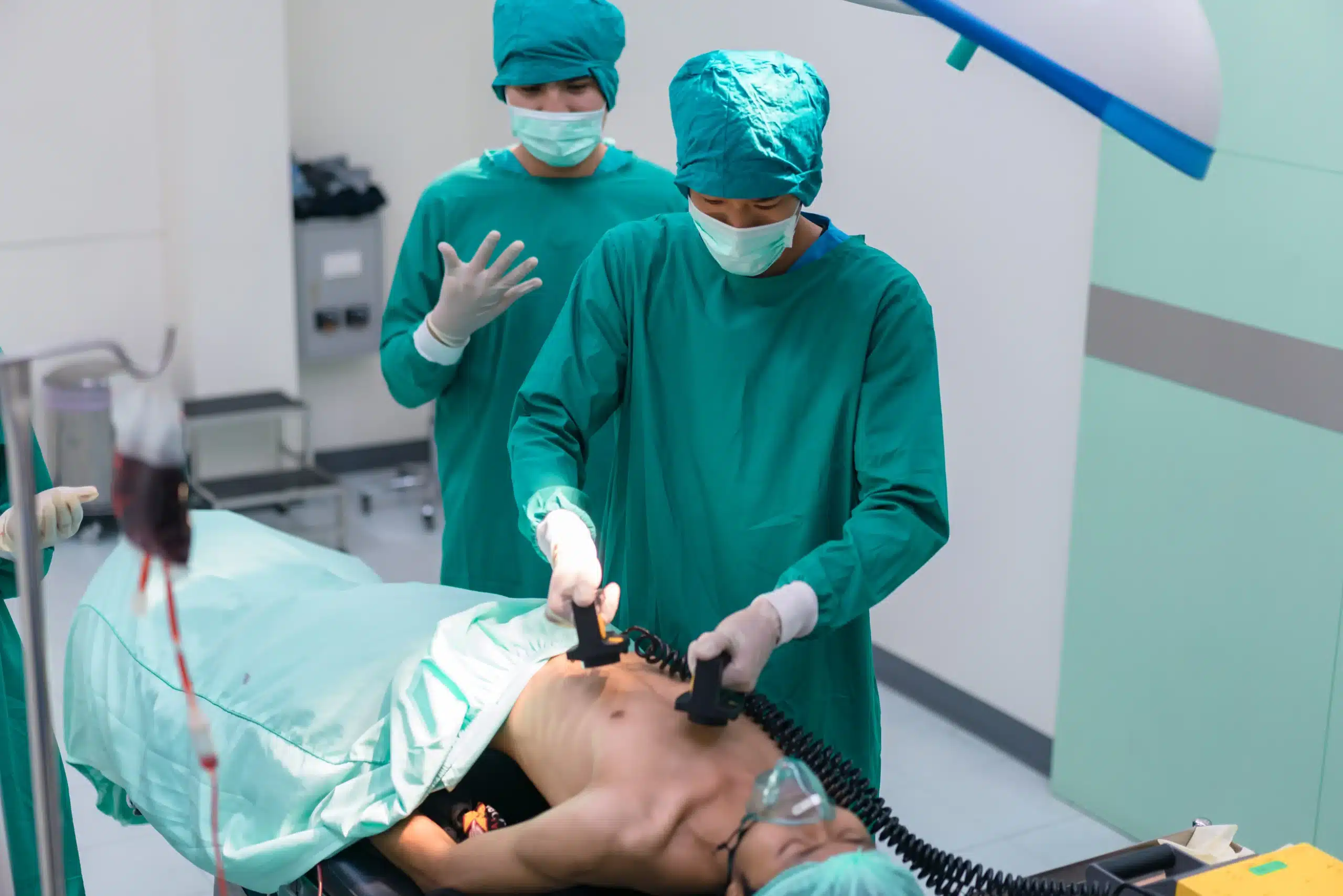Working in healthcare, you know how crucial staying current with CPR skills is, but finding the time for traditional classes can be a real struggle. That’s where Resuscitation Quality Improvement (RQI) comes in. RQI offers a smarter way to maintain your CPR skills with flexible online learning and short, frequent in-person practice. This modern approach ensures your skills stay sharp, boosting your confidence in emergencies. If you’re a healthcare provider in San Jose, this guide breaks down everything you need to know about RQI, from understanding the program to finding RQI in San Jose and getting certified. We’ll cover the key benefits, clear up common misconceptions, and help you prepare for your RQI class. Let’s dive in.
Key Takeaways
- RQI provides flexible CPR training that fits your schedule: The blended learning format combines online learning with short, in-person skills sessions, making it easier to stay current with your certifications.
- Regular practice and feedback are key to RQI’s effectiveness: Frequent skills sessions and immediate feedback help build and maintain proficiency, unlike traditional CPR training models.
- RQI offers more than just basic CPR: It covers a range of certifications, including BLS, ACLS, and PALS, and provides data-driven insights for continuous improvement.
What is RQI and How Does It Change CPR Training?
The Resuscitation Quality Improvement (RQI) program elevates CPR training for healthcare providers. It uses the latest science to build competence and confidence in performing CPR, preparing professionals to deliver the best possible care in emergencies. The program’s focus is on maintaining high-quality CPR skills, leading to better patient outcomes. You can learn more about the program through the American Heart Association. We also offer the RQI program for medical professionals in Milpitas. Check out our RQI classes for more information.
Key RQI Features
RQI stands out for its flexible training. The program blends online learning modules with short, frequent in-person skills sessions. This adaptable format makes it much easier for busy healthcare providers to stay up-to-date on their CPR skills. Regular practice and immediate feedback are cornerstones of the RQI program. These frequent sessions help maintain proficiency and build confidence, unlike traditional training methods that often lack ongoing skill reinforcement. For local RQI options, consider our courses in San Jose and nearby Morgan Hill.
RQI vs. Traditional CPR Training
Traditional CPR training typically involves longer, less frequent classes. RQI offers a more dynamic and effective approach. Healthcare professionals practice life-saving skills regularly, leading to improved skills and increased confidence in critical situations. This innovative model ensures CPR skills stay sharp and ready to use, ultimately improving patient care. You can explore more about how RQI differs from traditional CPR here. We offer a range of CPR courses, including BLS, ACLS, and CPR/First Aid in Milpitas, serving the broader San Jose and Santa Clara areas.
RQI Certifications in San Jose
RQI offers several crucial certifications for healthcare providers in San Jose, covering a range of life-saving skills from basic to advanced life support. Let’s take a closer look at each one.
Basic Life Support (BLS)
The American Heart Association RQI program offers a streamlined path to BLS certification for medical professionals in San Jose. This certification equips providers with the skills to perform CPR, use an AED, and relieve choking in adults, children, and infants. It’s the foundation for any healthcare professional and emphasizes high-quality CPR and resuscitation techniques. The RQI approach combines online learning with hands-on skills sessions, making it more convenient and efficient than traditional classroom-based courses.
Advanced Cardiovascular Life Support (ACLS)
For healthcare professionals who respond to cardiovascular emergencies, ACLS certification is essential. RQI’s ACLS program builds upon the foundation of BLS, adding advanced skills such as airway management, rhythm recognition, and pharmacology for treating cardiac arrest and other cardiovascular emergencies. The flexible, blended learning format makes it easier for busy professionals to stay up-to-date on their skills. Regular skills sessions and online modules ensure competency and provide real-time feedback to improve performance.
Pediatric Advanced Life Support (PALS)
PALS certification focuses on the specialized skills needed to respond to emergencies involving infants and children. The RQI PALS program covers topics like pediatric assessment, respiratory emergencies, and cardiac arrest management. Like BLS and ACLS, RQI PALS utilizes a blended learning approach, combining online modules with in-person skills sessions. This format allows providers to maintain their PALS certification through quarterly training, ensuring they are always prepared to provide the best possible care.
Find RQI Classes in San Jose
Ready to sign up for RQI training? Finding the right course in San Jose is straightforward. Here’s what to keep in mind:
Training Centers
Look for RQI classes offered through a certified American Heart Association (AHA) Training Center like Safety Training Seminars. This ensures your certification is valid and recognized. Consider factors like location and schedule when choosing a training center. Reading student reviews can also give you a sense of the quality of instruction and the overall learning experience. Our RQI classes are conveniently located in Milpitas, easily accessible to those in San Jose and Santa Clara.
Registering for a Class
Registering for an RQI class is typically a simple online process. The RQI program, developed by the AHA, offers a streamlined approach to CPR certification. You’ll find information about upcoming courses, schedules, and registration details on the training center’s website. Many centers offer various schedules to accommodate busy professionals. Check our course calendar to find a time that works for you.
Flexible Scheduling
One of RQI’s biggest advantages is its flexible learning format. The program combines online modules with short, frequent in-person skills sessions. This blended learning makes it much easier to fit the training into your busy schedule, unlike traditional CPR classes that require a larger block of time. RQI helps you keep your skills sharp with regular practice and immediate feedback, ensuring you’re always ready to respond in an emergency.
Cost and Value of RQI Training in San Jose
When considering RQI training, it’s helpful to understand the pricing structure and the long-term value it offers. RQI is an investment in your skills and can significantly impact your career, especially in healthcare.
Pricing
The cost of RQI training varies depending on the provider and the specific certification you’re pursuing (BLS, ACLS, or PALS). It’s often priced on a subscription basis, covering access to online learning materials and skills sessions. Contacting your local RQI training center is the best way to get accurate pricing. You can often find pricing details on a provider’s website. The American Heart Association RQI program is a popular choice for healthcare professionals seeking certification.
Discounts and Promotions
Look for potential cost savings! Many RQI providers offer discounts, especially for groups. Some providers, like Fresno CPR Classes, extend group discounts. It’s always worth asking about ongoing promotions or discounts when you contact a training center. This can make RQI training more accessible and affordable.
Long-Term Benefits
While there’s an upfront cost for RQI training, consider the long-term benefits. RQI helps you maintain CPR skills through short, frequent practice sessions and immediate feedback. This approach is more effective than traditional, infrequent CPR training, which can lead to skill decay. The flexible, blended learning format combines online modules with short skills sessions, making it easier to fit training into a busy schedule. RQI certification offers a convenient way to stay current with your certifications. Plus, studies show that regular practice with RQI improves CPR skills. One study found that practicing on an RQI simulation station every three months significantly improved compression and ventilation skills. This ongoing skill development can boost your confidence and enhance your value as a healthcare professional.
Common RQI Training Misconceptions
RQI is a fairly new approach to CPR training, so it’s understandable that some myths still circulate. Let’s clear up a few common misconceptions about RQI certification.
“It’s Just Another Online Course”
RQI certification isn’t just about clicking through online modules. It combines online learning with hands-on practice and simulation exercises. This blended learning approach reinforces CPR skills and knowledge more effectively than online-only courses. You’ll have opportunities to practice your skills and receive feedback, ensuring you’re fully prepared for real-life emergencies. For more information on the RQI training approach, check out this guide.
“RQI Isn’t as Thorough as Traditional Training”
Some assume that because RQI training is more convenient, it’s less comprehensive. This isn’t true. RQI follows the latest American Heart Association guidelines, covering the same core CPR principles as traditional courses. The difference lies in how the material is delivered. RQI uses a “little and often” approach, reinforcing skills regularly to improve retention.
“Only for Healthcare Professionals”
While RQI is highly beneficial for healthcare providers, it’s not exclusive to them. Anyone interested in learning or maintaining high-quality CPR skills can take an RQI course. This includes students, community members, and individuals in various professions requiring CPR certification, such as teachers, coaches, and childcare providers.
“Skills Stay With You Forever”
No matter how thorough your training, CPR skills can decline over time. This is true for both traditional CPR training and RQI. The RQI system addresses this through frequent, short practice sessions to maintain proficiency. These regular refreshers help ensure your skills remain sharp and you’re always ready to respond effectively in an emergency.
Prepare for Your RQI Class in San Jose
Getting ready for your RQI class is straightforward, but a little prep work goes a long way. Here’s what you should know to maximize your training:
Pre-Course Materials
Before your RQI class, familiarize yourself with any pre-course materials provided by the American Heart Association. The RQI program uses a blended learning approach, combining online modules with hands-on skills sessions. Reviewing the pre-course work gets you up to speed on the latest guidelines and preps you for a productive in-person session. This allows instructors to focus on refining your skills and answering questions, rather than spending time on basic concepts.
What to Bring
Keep it simple. Bring a valid photo ID and your pre-course completion certificate if you’ve finished the online portion. Having these items ready ensures a smooth check-in process so you can jump right into skills practice and testing. Comfortable clothing is also recommended, as you’ll be actively participating in demonstrations and exercises.
Course Expectations
RQI classes use short, frequent practice sessions and personalized feedback. This approach helps you build muscle memory and confidence. Unlike traditional, infrequent CPR training, RQI keeps your skills fresh through regular refreshers. The flexible online component makes it easier to fit the training into your busy schedule. You’ll work through online modules at your own pace, then attend a short, focused in-person skills session. This blended learning model makes maintaining your certification convenient and manageable.
Why Choose RQI Training in San Jose?
RQI training offers a fresh perspective on CPR education, focusing on consistent practice and real-time feedback. This approach helps healthcare professionals in San Jose maintain their skills and confidence in high-pressure situations. But what makes this method so effective, and why should you consider RQI training? Let’s explore some key advantages.
Improved Skill Retention and Real-Time Feedback
Traditional CPR training often involves lengthy, infrequent sessions. While valuable, this format can lead to skill decay over time. RQI combats this with short, regular practice sessions and immediate feedback. This reinforces learning and helps you maintain proficiency, ensuring you’re always ready to respond effectively in an emergency. As highlighted in this guide to RQI certification, frequent practice and feedback are crucial for honing CPR skills.
Convenience and Flexibility
Juggling work, family, and other commitments can make it tough to carve out time for traditional CPR training. RQI’s blended learning format offers a solution. It combines online modules with brief, hands-on skills sessions, allowing you to fit training seamlessly into your busy schedule. This RQI overview emphasizes the flexibility of RQI, making it a practical choice for busy professionals. You can learn at your own pace and complete the hands-on portion at various locations throughout San Jose.
Data-Driven Insights for Continuous Improvement
RQI goes beyond basic training by providing data-driven insights into your performance. This information helps you identify areas for improvement and track your progress. This focus on continuous improvement ensures you’re always refining your skills and staying up-to-date with the latest CPR techniques. This article discusses how RQI empowers healthcare professionals to regularly practice and improve their life-saving skills. This data-driven approach helps you understand your strengths and weaknesses, leading to more effective performance.
Testimonials
Choosing the right RQI provider is essential for a positive learning experience. Look for providers who offer high-quality training, convenient scheduling, and a supportive learning environment. This resource offers guidance on finding RQI training and certification. Reading testimonials and reviews can also offer valuable insights into other students’ experiences and help you make an informed decision. The goal is to find a program that empowers you to confidently master these essential skills.
Related Articles
- RQI in Santa Clara: The Ultimate Guide to CPR Training – Milpitas CPR Classes
- RQI in Milpitas: Your Guide to CPR Certification – Milpitas CPR Classes
- RQI Classes in Milpitas, CA – Milpitas CPR Classes
- Online CPR Classes in Milpitas: Your Complete Guide – Milpitas CPR Classes
Frequently Asked Questions
How does RQI differ from traditional CPR training? RQI emphasizes short, frequent skills sessions combined with online learning, unlike traditional CPR training, which typically involves longer, less frequent classes. This blended approach allows for more consistent practice and feedback, leading to better skill retention and increased confidence.
What certifications are available through RQI? RQI offers several key certifications, including Basic Life Support (BLS), Advanced Cardiovascular Life Support (ACLS), and Pediatric Advanced Life Support (PALS). Each certification covers specific skills and knowledge needed to respond to various medical emergencies. These certifications align with the latest American Heart Association guidelines.
How do I find RQI classes near me? You can locate RQI classes by searching for certified American Heart Association Training Centers in your area. Many training centers list their RQI courses online, along with schedules and registration information. Consider factors like location, schedule, and student reviews when selecting a training center.
What are the long-term benefits of RQI training? RQI training offers several long-term benefits, including improved skill retention, increased confidence in performing CPR, and greater flexibility in maintaining your certification. The blended learning format makes it easier to fit training into a busy schedule, while the focus on regular practice ensures your skills stay sharp. This can enhance your career prospects, especially in healthcare settings.
Is RQI training only for healthcare professionals? While RQI is highly beneficial for healthcare providers, it’s open to anyone interested in learning or maintaining high-quality CPR skills. This includes students, community members, and individuals in various professions that require or benefit from CPR certification.
